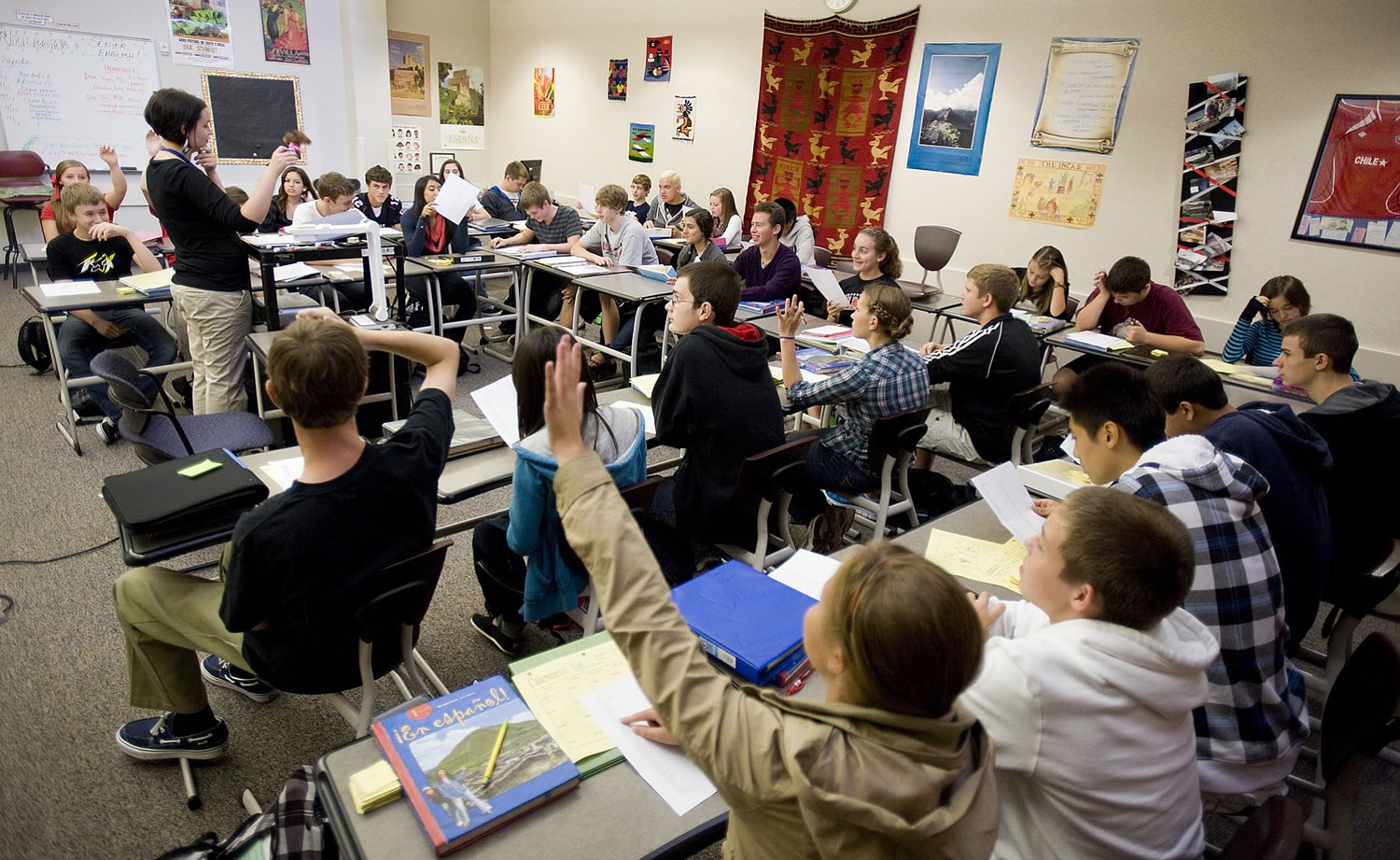SEATTLE — Sponsors of an effort to decrease class sizes in Washington state turned in more than 325,000 signatures supporting their proposed ballot initiative Wednesday, saying it represents “a clear message” from voters on education reform.
More than 30 children and their parents carried the signature pages into the secretary of state’s office in Olympia for review. About 246,000 valid signatures are needed to qualify for the November ballot.
“Over 325,000 voters are delivering a clear message that large class sizes are unacceptable, and we must give our kids the attention they need to succeed,” said Class Size Counts campaign manager Mary Howes.
Class sizes vary across the state, but sponsors say Washington has some of the largest average class sizes in the nation.
If voters were to approve Initiative 1351, it “would make us about average,” Howes said.
For kindergarten through third grade, non-poverty schools average about 25 children per class. The initiative would drop that number to 17.
Grades four through six average 27 students in both poverty and non-poverty schools. The initiative would reduce that to 25 in non-poverty schools and about 23 in poorer schools.
High school classes would go from nearly 29 students on average to about 24.
Lowering class sizes would cost the state billions of dollars in teacher salaries and school construction. The initiative does not include a plan for finding that money.
The Legislature already has committed to similar class size decreases. Those proposed changes were reinforced as part of the state Supreme Court’s McCleary school funding ruling and would cap kindergarten through third-grade classes at 17 children. Other grades would be limited to 25 students.
Initiative sponsors say one of the reasons for their effort is to force the Legislature to make good on its promises to reduce class sizes.
“The bottom line is it helps all students succeed,” Howes said of the initiative. “All students deserve to succeed in an uncrowded classroom.”
Howes said her group gathered all of the signatures through volunteers. She said the campaign paid some signature gatherers just in case they needed help, but didn’t turn in any of the signatures they collected.
“I’m just so proud of all of our volunteers and all the work they’ve done. It’s really an accomplishment,” Howes said.
Legislators from Clark County weigh in on initiative
A few state legislators from Clark County weighed in Wednesday on Initiate 1351 and how the state would pay for it.
“How much money are we going to generate from marijuana?” asked state Rep. Paul Harris, R-Vancouver.
Harris, a former member of the Evergreen school board, said he will be interested to see what revenue is generated from marijuana sales, and said that revenue could be used to reduce class size. Harris was emphatic that he was not considering raising taxes to reduce class size.
“We’re not going to raise taxes,” he said.
State Rep. Monica Stonier, D-Vancouver, said decreasing class sizes will mean hiring more teachers and building more classrooms.
“We have a lot of corporate tax exemptions for big businesses that are turning over $1 million in profit,” said Stonier, who is a teacher coach. “They have a lot of tax breaks that our working families don’t get. We need to go through those with a fine-toothed comb. For instance, an exemption to park their private jets in Washington tax free. There was no way I could bring myself to vote for that. I don’t want to raise taxes until we’ve rolled back some of those types of exemptions. I will do all of my work in that area before voting for tax increases.”
State Sen. Ann Rivers pointed out the state Supreme Court’s McCleary decision, which recently ordered the Washington Legislature to adequately fund basic education.
“In this day and age of McCleary, where’s the money going to come from?” Rivers said. “It’s something everyone recognizes needs to happen, but how will we pay for it? It’s a very complicated time in budgeting right now. Everything’s on the table. Everything must be on the table. We must proceed with that in mind.”
Rivers also brought up Initiative 732, which voters overwhelmingly passed in 2000 to give teachers cost-of-living adjustments, but said the initiative didn’t have a funding mechanism to pay for COLAs for teachers.
“I don’t see how we’d come up with the money to give teachers a cost-of-living raise and reduce class size. I don’t know how we’d manage it,” Rivers said.
— Susan Parrish



